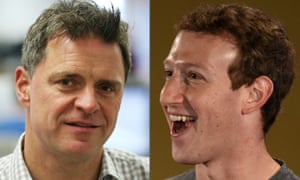
The Norwegian editor who successfully took on the might of Facebook over its censorship of the famous “napalm girl” photograph has challenged Mark Zuckerberg to publicly face up to his responsibility as one of the world’s most powerful people.
Espen Egil Hansen, whose newspaper Aftenposten helped force the social media site to back down in it decision to remove The Terror of War image from Facebook versions of its articles, accused Zuckerberg of ducking the debate. He branded Facebook a “frenemy of the people” because of the way it dominates the internet.

Zuckerberg, Facebook’s founder, has refused to comment on the issue. The company has relied instead on anonymous quotes released by a Swedish PR firm, Hansen said.
With Facebook's flaws in the spotlight, Mark Zuckerberg's silence is deafening | Espen Egil Hansen
In an article for the Guardian, Hansen urged Zuckerberg to stop hiding behind the company’s powerful algorithms and personally engage in this issue. He added that Zuckerberg’s passive approach so far was “bad for democracy” and could be bad for Facebook in the long run.
Hansen explained how the paper succeeded in challenging Facebook’s censorship and highlighting its role as the world’s most important distributor of news and content.
But he added that the campaign was “only symbolic” because it had so far failed to force Zuckerberg to publicly debate the issues it raised. He pointed out that, even though most people got their news from Facebook, the company insisted it was not part of the media.
Hansen writes: “Zuckerberg is de facto the most powerful editor-in-chief on the globe. His influence is greater than all the Rupert Murdochs of this world could dream about … We have now arrived at the point where Facebook, by controlling what they show to __more than 1 billion people every day, has aggregated so much editorial power, that Zuckerberg must acknowledge his responsibility and take part in the discussion.”